Publications
Articles, publications, books, tools and multimedia features from the U.S. Institute of Peace provide the latest news, analysis, research findings, practitioner guides and reports, all related to the conflict zones and issues that are at the center of the Institute’s work to prevent and reduce violent conflict.
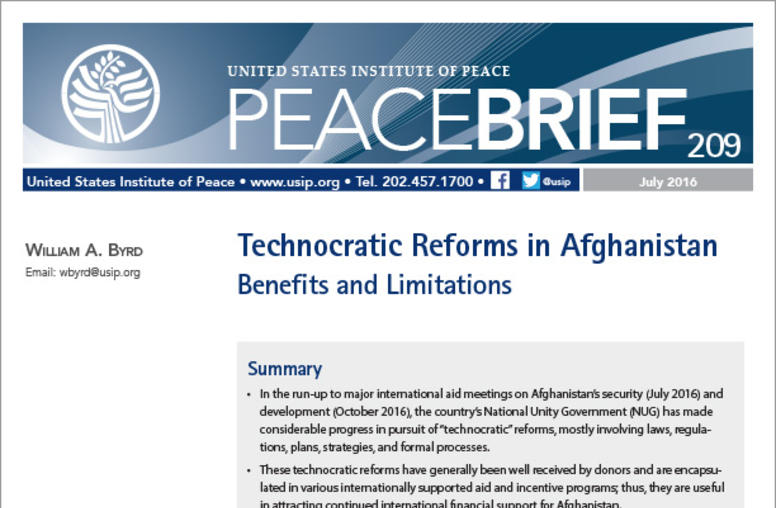
Technocratic Reforms in Afghanistan: Benefits and Limitations
Afghanistan’s “technocratic” reforms have resulted in impressive progress in areas such as public financial management. However, these reforms alone will not solve the country’s pressing security, political, and economic problems. This brief outlines the benefits and limitations of technocratic reforms and emphasizes that government and international attention should not be diverted from concrete, short-term measures to improve government functioning, strengthen security, and stimulate a mode...
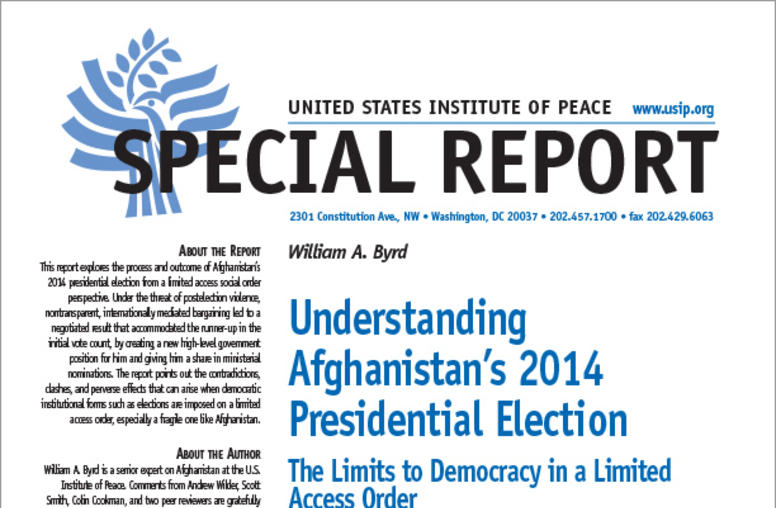
Understanding Afghanistan's 2014 Presidential Election
Afghanistan’s 2014 presidential election did lead to its first peaceful transfer of power. The process, however, was scarcely democratic. This report explores the election and its internationally mediated unity government outcome. Elections—when they can even be held in fragile and conflict-affected situations—tend to be more destabilizing than stabilizing. The overall lesson, as this report makes clear, points to certain critical needs for such countries: a better understanding of inherent i...
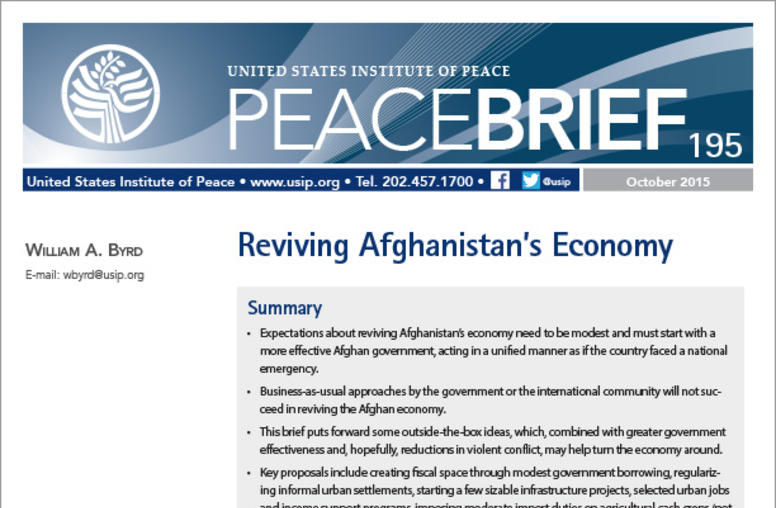
Reviving Afghanistan's Economy
Some say reviving the Afghan economy in a time of intensifying violent conflict and declining external financial inflows will be impossible. Expectations need to be kept modest, and measures must go beyond conventional economic approaches in order to be effective. This brief puts forward some outside-the-box ideas, which, combined with greater government effectiveness and, hopefully, reductions in violent conflict, may help turn the economy around.
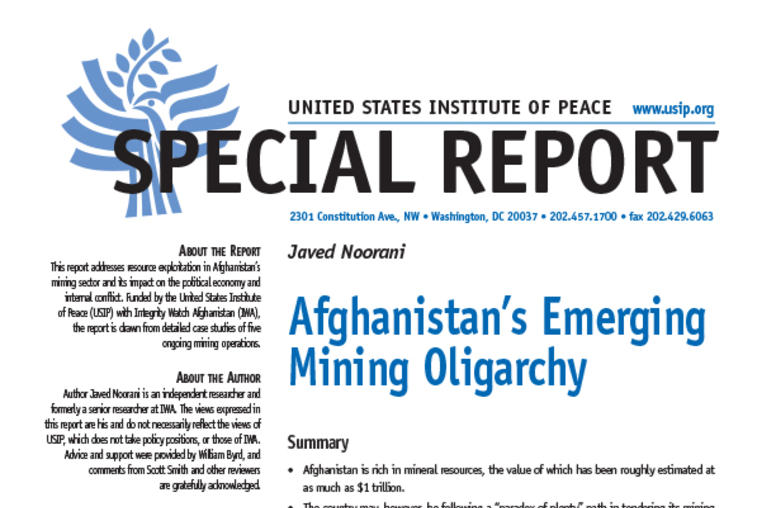
Afghanistan’s Emerging Mining Oligarchy
Rich in natural resources—ferrous and nonferrous metals and strategic minerals in particular—Afghanistan faces a dual threat as international troops withdraw and international aid declines. On the one hand are inadequate government revenues. On the other is the resource curse that affects so many low-income countries. This report, drawn from case studies of five ongoing Afghan mining operations, addresses resource exploitation, its impact on the political economy and internal conflict, and po...
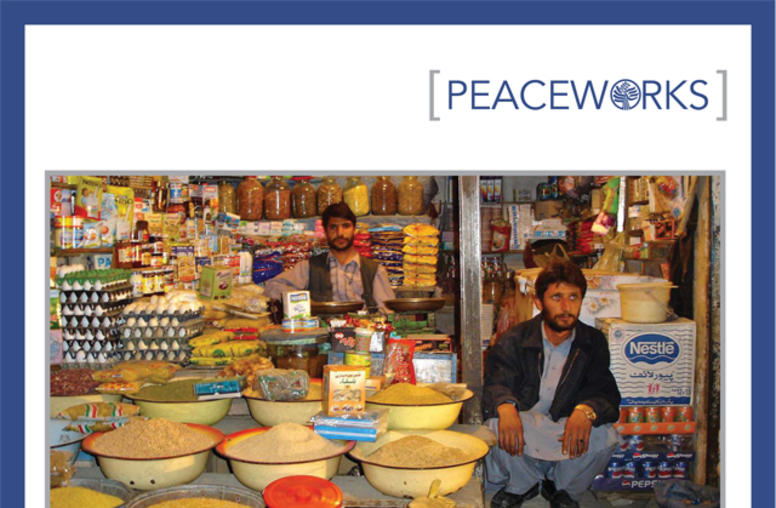
A New Approach to Understanding Afghanistan's Transition
When it is compared with other countries that have undergone transition, Afghanistan is revealed to be stronger than many on economic performance but weaker than the norm for governance and rule of law. If its strengths are supported and weak areas are targeted for improvement, the country will improve its prospects for a successful transition, say the authors of this new report.
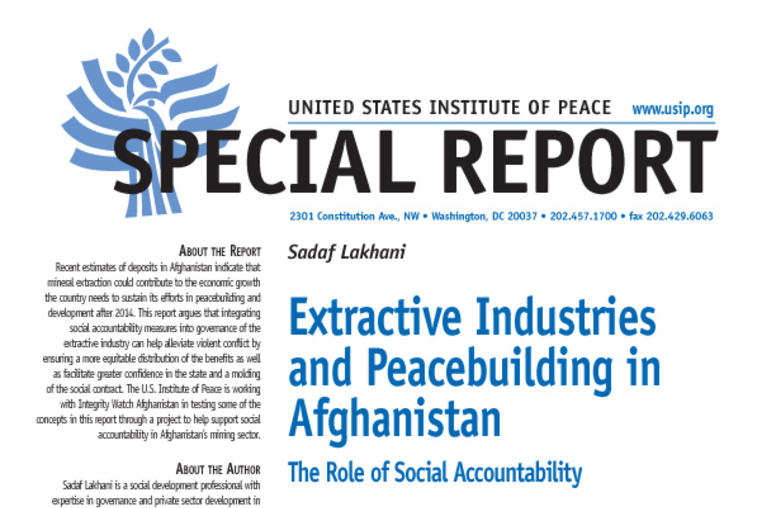
Extractive Industries and Peacebuilding in Afghanistan: The Role of Social Accountability
Mining operations in Afghanistan could be an important generator of economic growth for the country, but they also spark conflicts over environmental effects and perceptions that the economic benefits have been distributed unfairly. Local communities, the government, and mining companies would all benefit from mechanisms that focus on transparency and mediate grievances around these industries.
No Silver Bullets for Afghanistan’s Drug Crisis
Afghanistan supplies more than 90 percent of the world’s opium. Despite concerted efforts to tackle the drug problem in Afghanistan, the industry continues to grow at an alarming rate, particularly in the south, where reconstruction efforts lag amidst poor security.
Urgent Imperative: Get Afghanistan’s Government Working
Ten weeks after the Taliban briefly captured Kunduz, Afghanistan’s fifth-largest city, neither the fractured government nor the country’s political class is showing signs of heeding that wake-up call—or the other flashing warnings that the 14-month-old government is close to failure. While the United States quickly announced the reversal of its planned withdrawal of forces from the country, the factions in Kabul must figure out how to cooperate in governing, and Washington must do all it can to advance that, analysts say.
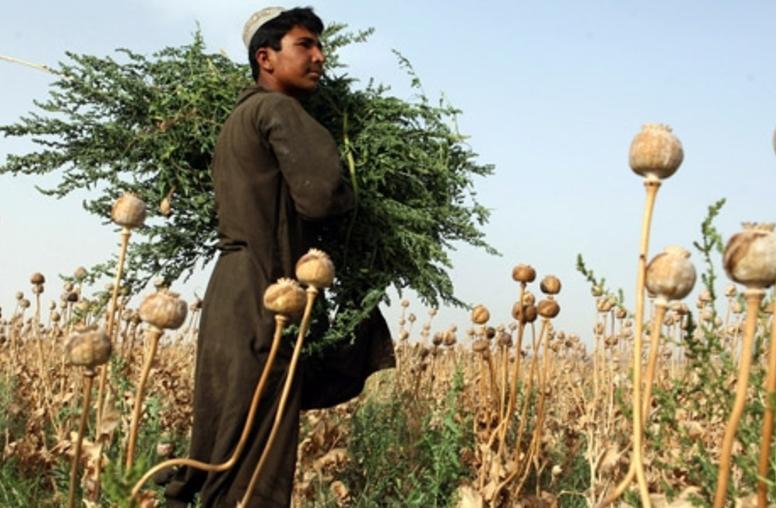
Top Afghan Officials Appeal for Sustained Help Against Opium
Top Afghan ministers and the governors of Kandahar, Helmand and Farah provinces appealed for international support of projects to curb the country’s opium poppy trade over the long haul, amid the risk that cultivation will rise in the short term as most U.S.-led military forces withdraw and foreign aid declines.
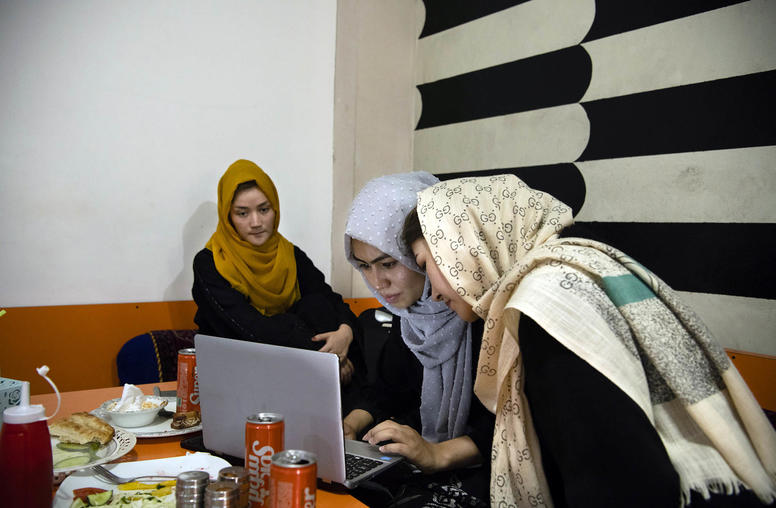
Taliban Escalate New Abuses Against Afghan Women, Girls
Afghanistan’s Taliban are escalating restrictions against women, sending armed men into girls’ classrooms and forcing staff to inspect girls’ bodies for signs of puberty to disqualify them from further schooling. Afghan women report Taliban enforcers beating women whom they find wearing Western-style pants beneath their regime-mandated outer robes. The Taliban are intensifying these assaults in response to women’s rights campaigns in Afghanistan and Iran, and amid their own struggle to consolidate power. The Taliban’s intensifying violations against women risk mass atrocities and may presage greater violent extremism and threats to international security. Policymakers must respond.